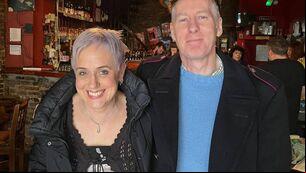‘We’ve become ive on food... it is killing us’

Karen O'Donohoe at Ballymaloe Organic Farm Schoo. Karen says we must use our citizen power to create change when it coimes to the food environment. Picture: David Creedon

Into this bubbling cauldron of ideas entered Karen O’Donohue. Best known to many for her work on RTÉs Grow, Cook, Eat, which she co-produced and presented, Karen has been involved with food, farming, growing, food activism, and “the critical importance of good food” for decades.

“For me, when I look at the climate and biodiversity crisis, the urgency is more to do with our children. They are the next generation of everything, but they are getting sicker and sicker - for several reasons, but the food that’s given to them and is available to them has a big part to play.







 App?
App?


